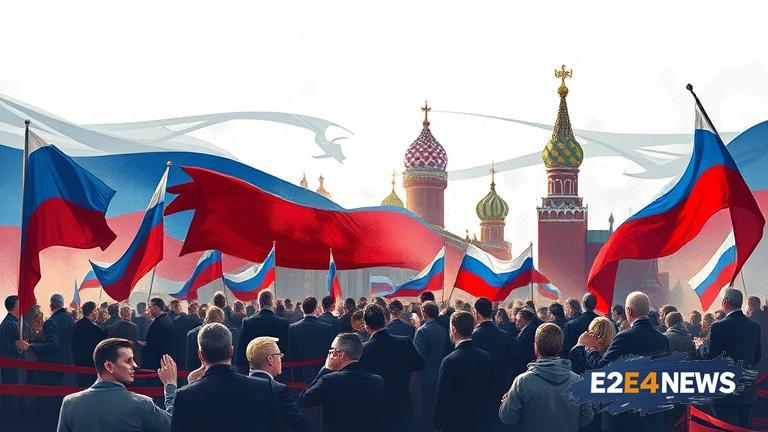The United Russia Party, a dominant force in Russian politics, has undergone significant transformations since its inception. Unlike the Communist Party of the Soviet Union (CPSU), which was known for its rigid ideology and centralized control, the United Russia Party has demonstrated a remarkable ability to adapt and evolve in response to changing circumstances. This flexibility has enabled the party to maintain its grip on power and navigate the complexities of modern Russian politics. One of the key factors contributing to the party’s success is its ability to respond effectively to threats, both internal and external. By being more sensitive to potential challenges, the United Russia Party has been able to preempt and mitigate risks, ensuring its continued dominance. In contrast to the CPSU, which often relied on repression and coercion to maintain control, the United Russia Party has adopted a more nuanced approach, combining elements of persuasion, co-optation, and strategic manipulation. This shift in strategy has allowed the party to build a broader base of support and foster a sense of legitimacy among the Russian population. Furthermore, the United Russia Party has been able to leverage its control over the media and other institutions to shape public opinion and influence the narrative. By presenting itself as a champion of Russian interests and a defender of national sovereignty, the party has been able to tap into the country’s deep-seated patriotism and sense of pride. At the same time, the United Russia Party has also demonstrated a willingness to engage with opposition forces and incorporate elements of their platforms into its own agenda. This pragmatic approach has helped to reduce tensions and create a sense of stability, allowing the party to focus on addressing the country’s pressing economic and social challenges. Despite these advances, the United Russia Party still faces significant challenges, including corruption, inequality, and a declining standard of living for many Russians. To address these issues, the party has launched a series of initiatives aimed at promoting economic growth, improving public services, and enhancing social welfare. While the effectiveness of these measures remains to be seen, they demonstrate the party’s commitment to responding to the needs and concerns of the Russian people. In addition to its domestic agenda, the United Russia Party has also played a key role in shaping Russia’s foreign policy, particularly with regards to its relationships with Western countries. By adopting a firm but pragmatic stance, the party has been able to navigate the complexities of international diplomacy and protect Russian interests abroad. Overall, the United Russia Party’s unique blend of flexibility, sensitivity to threats, and strategic adaptability has enabled it to maintain its position as a dominant force in Russian politics. As the country continues to evolve and face new challenges, it is likely that the party will remain a major player, shaping the course of Russian history for years to come. The party’s ability to balance competing interests and priorities has been a key factor in its success, allowing it to build a broad coalition of support and maintain a sense of stability. However, the party’s reliance on a strong leader and its tendency to suppress dissent have raised concerns about its commitment to democratic values and human rights. Despite these concerns, the United Russia Party remains a powerful and influential force in Russian politics, and its ability to adapt and evolve will be crucial in determining the country’s future trajectory. The party’s leadership has recognized the need for reform and has taken steps to address some of the country’s most pressing challenges, including corruption and inequality. While these efforts are still in their early stages, they demonstrate a willingness to engage with the problems facing Russia and to work towards finding solutions. As the country looks to the future, it is clear that the United Russia Party will play a major role in shaping its development and direction. With its unique blend of flexibility, pragmatism, and strategic adaptability, the party is well-positioned to navigate the complexities of modern Russian politics and to respond to the challenges and opportunities that lie ahead.





